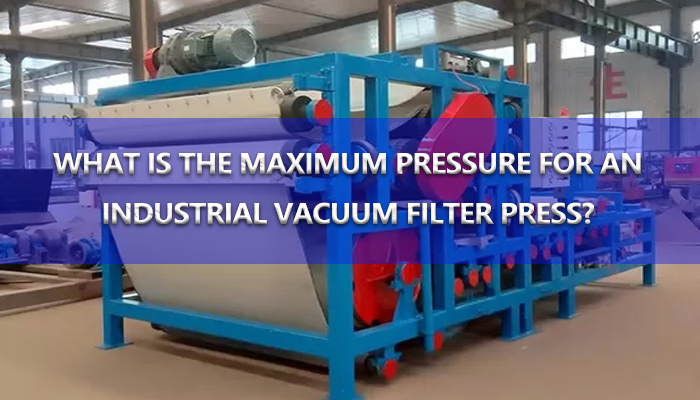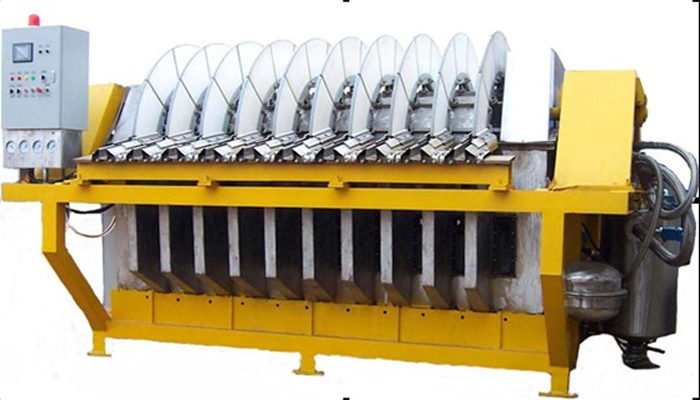This article provides insights into the maximum pressure for an industrial vacuum filter press. The industrial vacuum filter press is a crucial equipment used in various industries for solid-liquid separation.
Introduction
The industrial vacuum filter press is a vital component in solid-liquid separation processes. Understanding its maximum pressure capacity is crucial for optimizing its performance and achieving effective filtration.
In this article, we will delve into the maximum pressure for a filter press, its implications, and its importance in various industries.
Section 1: Working Principle of the Industrial Vacuum Filter Press
The industrial vacuum filter press operates on the principle of suction and pressure differentials. The filter press consists of a series of chambers with filter cloths and a vacuum system.
The slurry is pumped into the chambers, and the vacuum system creates a pressure differential, causing the liquid to be drawn through the filter cloths, while solids are retained as filter cakes. The maximum pressure capacity of the vacuum system plays a crucial role in determining the efficiency of the filtration process.

Section 2: Benefits and Applications
The industrial vacuum filter press offers several benefits in solid-liquid separation. It provides high filtration efficiency, leading to cleaner filtrate and drier filter cakes.
The filter press is used in various industries, including mining, chemical, pharmaceutical, and wastewater treatment, for applications such as dewatering, clarification, and separation of solids from liquids.
Section 3: Factors Determining the Maximum Pressure Capacity
Several factors influence the maximum pressure capacity of a filter press. The design and construction of the equipment, including the strength and integrity of the filter plates, filter cloths, and sealing systems, play a significant role.
Additionally, the vacuum system’s power, efficiency, and the properties of the slurry being processed influence the maximum pressure that can be applied.
Section 4: Importance of Maximum Pressure in Efficient Filtration
The maximum pressure capacity of the industrial vacuum filter press is crucial for achieving efficient filtration processes. It determines the rate of filtration, the quality of the filtrate, and the dewatering efficiency.
By optimizing the maximum pressure, industries can enhance productivity, reduce processing time, and achieve higher solids removal efficiency.

Section 5: Case Study: Industrial Vacuum Filter Press in the Mining Industry
To illustrate the significance of the maximum pressure in a filter press, let’s consider a case study in the mining industry.
By operating the filter press at its maximum pressure capacity, a mining company achieved faster dewatering of slurry, resulting in increased production capacity and reduced operating costs. The higher pressure allowed for better solids retention and improved the overall efficiency of the filtration process.
Conclusion
The maximum pressure capacity of a filter press is a critical parameter in achieving efficient solid-liquid separation. It directly influences the rate of filtration, the quality of the filtrate, and the dewatering efficiency.
By understanding the factors determining the maximum pressure and optimizing its utilization. Industries can enhance their filtration processes, improve productivity, and reduce costs. The industrial vacuum filter press serves as a reliable and efficient solution for solid-liquid separation in various sectors. Contributing to optimized operations and sustainable production.